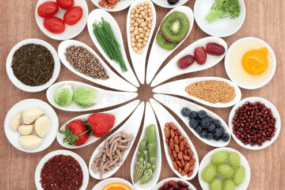
Introduction
In recent years, the popularity of vegetarianism has surged as more people become aware of its numerous benefits. From health improvements to environmental sustainability, the vegetarian lifestyle is proving to be more than just a dietary choice—it’s a movement toward a better future. Whether motivated by ethical concerns, environmental responsibility, or personal well-being, individuals who adopt a plant-based diet often experience profound changes in their lives. This article explores the many advantages of a vegetarian lifestyle and provides insights into how it contributes to a healthier and more sustainable world.
Health Benefits of a Vegetarian Diet
One of the most compelling reasons people choose a vegetarian diet is the numerous health benefits associated with plant-based eating. Scientific research has consistently shown that a well-balanced vegetarian diet can lead to improved overall health and a lower risk of chronic diseases.
1. Reduced Risk of Heart Disease
Heart disease remains one of the leading causes of death worldwide. Studies indicate that vegetarians tend to have lower cholesterol levels, reduced blood pressure, and a lower risk of heart disease compared to meat-eaters. The absence of saturated fats from red and processed meats, combined with the high fiber content of plant-based foods, contributes to better heart health.
2. Weight Management and Obesity Prevention
Maintaining a healthy weight is a concern for many individuals, and a vegetarian diet can be an effective way to manage weight. Plant-based foods are generally lower in calories and higher in fiber, promoting satiety and reducing overall calorie intake. Studies have shown that vegetarians typically have lower body mass indexes (BMIs) than non-vegetarians.
3. Lower Risk of Type 2 Diabetes
A diet rich in whole grains, legumes, fruits, and vegetables can help regulate blood sugar levels and improve insulin sensitivity. Research suggests that vegetarians have a significantly lower risk of developing type 2 diabetes compared to meat-eaters. The high fiber content in plant-based diets slows down the absorption of sugars, preventing blood sugar spikes.
4. Cancer Prevention
Certain types of cancer, particularly colorectal cancer, have been linked to the consumption of red and processed meats. A vegetarian diet, rich in antioxidants and phytochemicals from fruits and vegetables, may help reduce the risk of cancer. Studies indicate that a diet abundant in fiber, vitamins, and minerals supports a strong immune system and helps the body fight cancerous cells.
5. Improved Digestive Health
The high fiber content of plant-based foods aids digestion and promotes gut health. Fiber helps prevent constipation, supports a healthy gut microbiome, and reduces the risk of digestive disorders such as irritable bowel syndrome (IBS) and diverticulitis.
Environmental Benefits of a Vegetarian Lifestyle
Aside from personal health benefits, adopting a vegetarian diet plays a crucial role in environmental sustainability. The global demand for meat has led to significant environmental challenges, including deforestation, water shortages, and climate change.
1. Reduction in Greenhouse Gas Emissions
The livestock industry is one of the largest contributors to greenhouse gas emissions, surpassing even the transportation sector. Raising animals for food generates methane, a potent greenhouse gas that contributes to global warming. By reducing meat consumption, individuals can significantly lower their carbon footprint.
2. Conservation of Water Resources
Meat production is incredibly water-intensive. For example, it takes approximately 1,800 gallons of water to produce just one pound of beef. In contrast, plant-based foods such as lentils, beans, and vegetables require significantly less water to cultivate. A vegetarian diet helps conserve precious water resources and reduces water pollution from livestock waste.
3. Preservation of Land and Forests
Raising livestock requires vast amounts of land, leading to deforestation and habitat destruction. Rainforests, often referred to as the “lungs of the Earth,” are being cleared at alarming rates to make way for cattle ranching. By choosing a vegetarian diet, individuals help protect forests, preserve biodiversity, and maintain ecosystems.
4. Reduction in Pollution
Factory farming generates large amounts of waste, contributing to air and water pollution. Runoff from animal farms contaminates rivers, lakes, and groundwater, affecting both human and aquatic life. Plant-based diets significantly reduce pollution levels and promote cleaner water and air quality.
Ethical and Moral Considerations
For many individuals, vegetarianism is not just about health and the environment—it’s also an ethical decision. Factory farming practices often involve cruelty, overcrowding, and inhumane treatment of animals. Choosing a vegetarian lifestyle aligns with the values of compassion and respect for all living beings.
1. Animal Welfare
Factory farms prioritize efficiency and profit, often at the expense of animal welfare. Animals are confined to small spaces, subjected to inhumane conditions, and deprived of natural behaviors. By eliminating meat from their diets, vegetarians take a stand against animal cruelty and support more humane treatment of animals.
2. Ethical Food Choices
Many vegetarians believe in making food choices that do not involve harm to sentient beings. Ethical eating involves considering the impact of food production on animals, workers, and communities. Supporting plant-based food industries encourages ethical and sustainable food practices.
Transitioning to a Vegetarian Diet
Adopting a vegetarian lifestyle can be an exciting and rewarding journey. Here are some tips to make the transition easier:
1. Start Gradually
If eliminating meat all at once seems daunting, start by incorporating more plant-based meals into your diet. Meatless Mondays or replacing one meal a day with a vegetarian option can be a great way to begin.
2. Experiment with Plant-Based Protein
Many people worry about getting enough protein on a vegetarian diet. However, there are numerous plant-based protein sources, including lentils, chickpeas, tofu, tempeh, quinoa, and nuts. Exploring different protein options helps maintain a balanced diet.
3. Learn to Cook Vegetarian Meals
Cooking at home allows for better control over ingredients and ensures balanced nutrition. There are countless vegetarian recipes available that are both delicious and nutritious.
4. Read Food Labels
Many processed foods contain hidden animal-derived ingredients. Learning to read labels can help vegetarians make informed choices about their food.
5. Seek Support
Joining vegetarian communities, following plant-based influencers, or engaging with online resources can provide encouragement and meal inspiration.
Conclusion
A vegetarian lifestyle offers a wealth of benefits, from improved health to a positive impact on the environment and animal welfare. Whether you choose this path for personal well-being, sustainability, or ethical reasons, embracing plant-based eating can lead to a healthier and more compassionate world. With increasing awareness and accessibility to vegetarian options, making the shift has never been easier. By making mindful choices, individuals can contribute to a brighter future for themselves and the planet.























